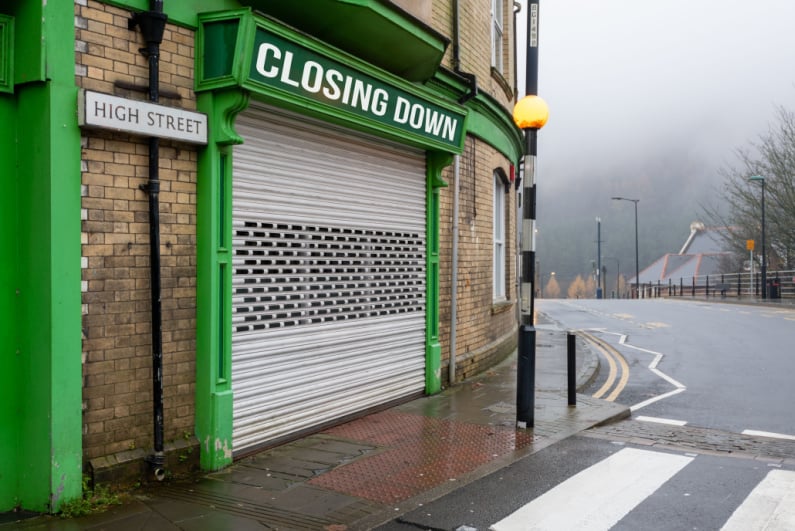
Britons are clinging on
It’s bad news for the UK this week as the cost-of-living crisis worsens.
A recent study commissioned by i found that 58% of Britons are “struggling” or “just about managing” to stay afloat amid the economic downturn in the region. Around 80% of respondents said that the cost-of-living crisis was the worst issue facing the UK currently.
onlookers expect the anticipated 0.25% increase to worsen the recession
Not only that, but the results also come the same week that the Bank of England is expected to increase interest rates once more. It will mark the 14th consecutive rate hike and onlookers expect the anticipated 0.25% increase to make a recession even more likely, putting greater financial pressure on households.
With more than half of the study’s 1,500 respondents indicating that they were concerned about paying for necessities each month, does the UK gaming industry stand a chance of maintaining its £14bn+ ($17.9bn) annual revenue?
The impact on businesses
Other sectors in the UK are already complaining about the impact of the struggling economy.
According to research by Close Brothers Motor Foresight, 66% of UK car dealers say the cost-of-living crisis is forcing customers to be more cautious about buying vehicles. When they do end up buying a vehicle, they are choosing cheaper ones, according to 70% of dealers. They are also cutting back on extras and trying to haggle on the price.
Data taken by the Virgin Media O2 Business Movers Index from the British high street found that 54% of businesses have noticed that customers are now spending less than they did at the beginning of the year. Cash-strapped shoppers are going second-hand for a lot more of their goods, while food remains the only item that Brits are buying more.
Kindred highlighted a “particularly strong performance” in the UK
Meanwhile, however, the online gaming industry seems to be fairing much better. If we take betting operator Kindred for instance, the firm saw total revenue of £613.7m ($789m) for the first half of 2023, a rise of 23% year-on-year. Although an international company, Kindred highlighted a “particularly strong performance” in the UK.
On the land-based side, things are also looking up. Rank Group, the owner of Grosvenor Casinos which has struggled since the pandemic, announced that revenue was up 13% for Q3 of its financial year in April. It reported growth specifically across its Grosvenor, Mecca Bingo, and Enracha venues, confirming that this was driven by an increase in visitors to physical locations.
Overall gambling has increased in the UK for the first reported months of 2023 too. According to UK Gambling Commission data, gross gambling yield increased 2% year-on-year for Q1 this year.
Learnings from the past
While the gambling industry might be surviving for now, there are still fears that it could suffer if the recession worsens, as it is expected to. To assess whether there is any weight to these concerns, it is important to take a look at the last major recession that hit the region.
A recession is officially defined as two consecutive quarters of economic contraction, which last occurred between 2008 and 2012 in the Great Recession. Many defined this as the most severe global economic downturn since the Great Depression, causing many businesses to fall by the wayside.
73% of adults gambled in 2010, an increase of 5% from before the recession
For the most part, though, the gaming industry continued its upwards trajectory during this time. The British Gambling Authority reported that 73% of adults gambled in 2010, an increase of 5% from before the recession even began in 2007.
Many gambling industry heads have referred to the sector as “recession-proof” as a result. The execs of companies such as William Hill and Ladbrokes said that they had not seen any downturn in gambling participation during the recession. They argued that for most people gambling was an affordable indulgence, thanks to average wagers amounting to less than £10 ($12.83).
However, that was at a time when the online industry was growing at a much greater rate than today. Global Betting and Gaming Consultants analyst Warwick Bartlett alluded to this when he said: “No sector of the gambling industry is immune from the effects of the global recession but our research has shown that some are better able to mitigate its effects through new technology, innovation, and benefitting from new regulation.”
Either way, the gaming industry will find out just how resilient it is in the coming months, for better or for worse. While the dawn of online gambling may be behind us, the sector is renowned for its innovation in times of high pressure. Perhaps the upcoming recession with spark even greater ingenuity.
- SEO Powered Content & PR Distribution. Get Amplified Today.
- PlatoData.Network Vertical Generative Ai. Empower Yourself. Access Here.
- PlatoAiStream. Web3 Intelligence. Knowledge Amplified. Access Here.
- PlatoESG. Automotive / EVs, Carbon, CleanTech, Energy, Environment, Solar, Waste Management. Access Here.
- BlockOffsets. Modernizing Environmental Offset Ownership. Access Here.
- Source: https://www.vegasslotsonline.com/news/2023/07/31/uk-gaming-battling-the-worst-cost-of-living-crisis-in-a-generation/
- 1
- 2008
- 2023
- 500
- a
- able
- About
- according
- across
- adults
- affordable
- already
- also
- Although
- amid
- an
- analyst
- and
- announced
- annual
- anticipated
- any
- April
- ARE
- argued
- around
- as
- assess
- At
- Authority
- average
- back
- bad
- Bank
- Bank of England
- BE
- before
- began
- beginning
- behind
- benefitting
- Better
- Betting
- between
- Bingo
- British
- Brothers
- business
- businesses
- but
- Buying
- by
- car
- Casinos
- causing
- cautious
- chance
- Choosing
- close
- CO
- come
- coming
- commission
- Companies
- company
- concerns
- consecutive
- consultants
- continued
- contraction
- could
- crisis
- currently
- Customers
- cutting
- defined
- depression
- DID
- do
- does
- downturn
- driven
- During
- each
- Economic
- economic downturn
- economy
- effects
- end
- England
- enracha
- even
- expect
- expected
- facing
- fall
- fears
- financial
- financial year
- find
- Firm
- First
- food
- For
- from
- Gambling
- gambling commission
- gambling industry
- Gaming
- Gaming Industry
- Global
- going
- goods
- great
- Great Depression
- greater
- Gross
- Grosvenor
- grosvenor casinos
- Group
- Growing
- Growth
- had
- half
- has
- Have
- he
- heads
- High
- Highlighted
- hike
- HIT
- How
- however
- HTTPS
- if
- Impact
- important
- in
- Increase
- increased
- industry
- ingenuity
- Innovation
- instance
- interest
- Interest Rates
- International
- Is
- issue
- IT
- ITS
- jpg
- just
- Kindred
- last
- less
- likely
- locations
- Look
- looking
- lot
- maintaining
- major
- make
- many
- mark
- May
- mecca bingo
- Media
- might
- mitigate
- Month
- months
- more
- most
- much
- necessities
- New
- news
- not
- now
- occurred
- of
- Officially
- on
- once
- ones
- online
- online gambling
- Online Gaming
- only
- operator
- or
- our
- out
- owner
- pandemic
- part
- participation
- paying
- People
- perhaps
- physical
- plato
- plato data intelligence
- platodata
- platogaming
- pressure
- price
- putting
- Q1
- rank
- Rank Group
- rate
- rate hike
- Rates
- recent
- recession
- region
- Regulation
- remains
- renowned
- reported
- research
- respondents
- result
- Results
- revenue
- rise
- Said
- same
- saw
- say
- Sector
- Sectors
- seems
- seen
- severe
- Shoppers
- shown
- side
- since
- some
- specifically
- Spending
- stand
- stay
- still
- street
- strong
- struggling
- Study
- such
- Take
- taken
- Technology
- than
- thanks
- that
- The
- their
- there
- These
- they
- things
- this
- though
- Through
- time
- times
- to
- Today
- too
- trajectory
- two
- Uk
- up
- upcoming
- us
- vehicle
- Vehicles
- venues
- Virgin
- Virgin Media
- visitors
- wagers
- was
- way
- we
- week
- were
- when
- whether
- while
- will
- William Hill
- with
- worse
- worst
- year
- Yield
- zephyrnet











